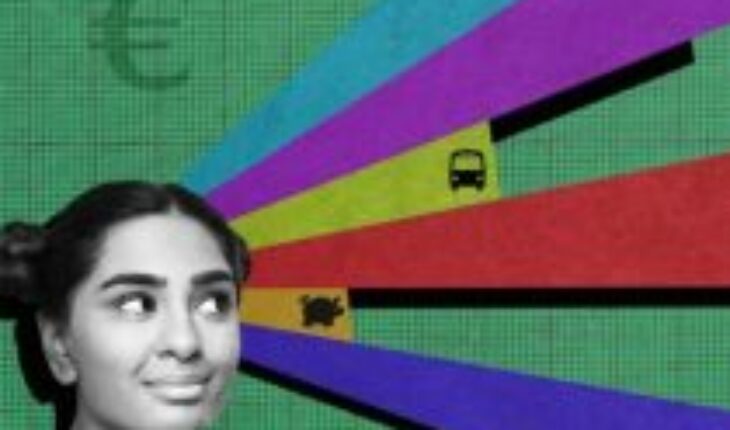Instead, consider a panel of measures that includes things like happiness, health, and inequality.
A bond is actually a way for a government or a company to borrow some money.
If, for example, a government needs to borrow money to build a new train line, they can ask us if we would lend them some money, promising to pay it back, even with some interest, as a token of appreciation.
Governments of stable countries are generally considered a safe place to keep money. That’s because they endure, unlike people who tend to die after 80 years and run out of time to pay off their debts.
In addition, they can raise taxes, which means that if they have difficulty paying off their debt, they can find more money.
That’s why pension funds like to buy government bonds, as they need a safe place to keep their money, as they have to pay it off many years later.
Companies can sell bonds, but they can also sell stocks.
The concept of shares was UtiHeld for the first time by the conde of Cumberland in 1600.
He wanted to raise money for a dangerous and risky expedition to the Spice Islands (Maluku Islands, Indonesia). A total of 218 people contributed and were rewarded with a share of the profits when he returned home with a boat loaded with spices to sell.
Today, those people would have a stake in what became the East India Company and would still receive a share of the profits when the goods were sold.
More and more people started asking for money this way and eventually the Stock Exchange was born, where stocks are traded whose value depends entirely on a collection of optimistic and pessimistic views on how they will fare.
If you do not have shares and you wonder how a rise or fall of the stock market affects you, the main link is your pension fund, which can be affected if there is a large up or down movement.
5. Recessions
“The technical definition of a recession,” explains Richard Davis, “is when an economy goes through two consecutive quarters of negative growth.”
That’s a way of saying the economy has been contracting.
A recession can be caused by something that makes us poorer or makes us feel poorer and prevents us from spending money.
That, in turn, means other people have fewer tickets and have less to spend. The process continues to have an impact on the economy, until it enters into recession.
There are two main types of recession.
The first is when an external shock hits the economy, causing the value of assets, from the stock market to the value of people’s homes, to stagnate or fall.
When these assets have less value, people see their overall wealth decrease and tend to reduce their spending.
That, in turn, leads to a decrease in other people’s income (and in some cases unemployment) and also to a decrease in their spending.
Recession can also be caused by a long period in which the level of wages rises at a slower pace than the price level.
In those cases, workers’ purchasing power decreases and the amount people spend generally decreases as well.
Governments can play a role in preventing recessions.
Ideally, Davis explains, “when households are feeling the pressure, you want the government to go out and spend and cut taxes.”
If something hits the economy and people suddenly get out of work and can spend less, ideally the government would start spending more, building new schools and hospitals, and creating more jobs for people.
This, in theory, would cause people to spend and the economy to grow again.
But it is a juggling Make it sustainable.





